Amy Low thought she’d caught a stomach bug.
Back from a long work trip in 2019, Low, a managing director for the Emerson Collective, was feeling achy and tired and unable to keep up. A fever and a “funky gut” warranted a trip to her doctor, which led to a prescription for some antibiotics and an ultrasound to make sure everything was OK.
It was not. The scan showed a growth on her liver. A biopsy revealed it was cancerous.
“I’m sorry,” she recalls the surgeon telling her after the biopsy.
A few days later, another doctor told the then-48-year-old Low that she was dying of Stage 4 colon cancer.
Your tax-deductible gift helps our journalists report the truth and hold Christian leaders and organizations accountable. Give a gift of $30 or more to The Roys Report this month, and you will receive a copy of “What If Jesus Was Serious about the Church?” by Skye Jethani. To donate, click here.
“He delivered his words with great care, but I hated each one,” Low recalls in her new memoir, “The Brave In-Between,” out this month from Hachette. “They were awful, and the notion of shooting the messenger started to resonate with me like never before.”
In her book, Low, a Christian college graduate and daughter of a pastor, grapples with the lessons learned in what she calls the “last room” — a stage where she is close to dying but still here. It’s a room we all will enter at some point, she writes. But few of us think about our mortality before then.
The lessons she’s learned there have taught her life can be both beautiful and awful, often at the same time.
That’s different from what she learned growing up in church or as a college student — where she heard that God had a wonderful plan for her life and if she was faithful, things would turn out for the best. She now sees that message as more prosperity gospel than actual Bible teaching.
Sometimes terrible things happen, she said in a recent interview. Not because of a lack of faith but because life is hard.
“One of the things that I’ve learned over the past decade is that hardship has nothing to do with God’s faithfulness,” she said. “God is, for me anyway, even more present through the hardship than through the mountaintops.”
Low said she wrote the book for people who find themselves, like her, lost and with no easy way out. She doesn’t offer advice but instead tells her story in hopes of reminding people they are not alone when things go bad. And they are often not to blame.
“It’s not because of a lack of faith,” she told media. “It’s not because of a lack of prayer.”
Her book is a bit reminiscent of “Everything Happens for a Reason: And Other Lies I’ve Loved,” the 2018 bestseller by Duke Divinity professor Kate Bowler, a scholar who studies the prosperity gospel, and who, like Low, was diagnosed with Stage 4 cancer at a young age. That book also took on the evangelical belief that “God has a wonderful plan for your life,” made popular through an evangelistic technique known as the “Four Spiritual Laws.”
Yet Low, who grew up in the Presbyterian Church (U.S.A), said she’s not willing to give up on the idea that her suffering has meaning. To imagine her cancer was just bad luck or meaningless leaves her in a “cold, dark place.” To say it’s all part of God’s plan is too simplistic, she said.
Instead, Low has found herself in the middle of an unfolding story, filled with miracles and heartache, with good friends and caregivers who accompany her. She compares it to being in a play, where the script has changed and the cast has to adapt to a new reality — and the outcome is not yet clear.
“I’d like to invite us to the mystery of the middle,” she said. “It turns out there is deep purpose here. That does not make it easier but it absolutely provides a deeper structure of meaning.”
With tenderness and vulnerability, and a dose of self-deprecating humor, Low recounts her story of battling cancer and some of the heartaches that preceded her diagnosis — most notably a painful divorce. She recounts discovering her ex-husband’s infidelity and how she demanded that he call the woman he had an affair with so that he could end their relationship over speakerphone. Yet when she was diagnosed, her ex-husband moved into her home to care for their teenage children while she recovered from surgery.
Much of the book is framed around a passage from the New Testament book of Philippians, written when the Apostle Paul was imprisoned and likely headed toward his last days, said Low.
“Finally, brothers and sisters, whatever is true, whatever is noble, whatever is right, whatever is pure, whatever is lovely, whatever is admirable — if anything is excellent or praiseworthy — think about such things,” he wrote.
Low said words like right or noble were abstract ideals before she was ill. Now they have become more real to her.
Before being diagnosed with cancer, forgiveness felt like a platitude, Low said. In the last room, it has become real. For years, Low had imagined that perhaps when she was 60, she’d be able to forgive her ex-husband. Once she was diagnosed, she no longer had the option of waiting.
In the early days of her diagnosis, things were touch and go, said Low. She did not know how much time she had left and knew her ex-husband would need to be an anchor for their two kids when she was gone.
Forgiveness, she said, meant believing her ex was not only his past actions. There were consequences for his past actions, but they did not define who he was. Low also had feared that by forgiving him, some part of her would be erased, as if the heartache she had experienced didn’t matter. But she was wrong.
“That’s one of the lovely paradoxes of forgiveness,” she said. “You are not erased. You’re putting a new chapter in motion.”
The past few months have been difficult for Low. Her cancer has spread, and life has become precarious as she’s running out of treatment options. These days, she tries to pay attention to what she calls the “mundane miracles” — small moments of life that are filled with meaning.
She hopes readers will do the same.
“This is a book about living,” she said. “If we have eyes to spot more of these mundane miracles, we’re all going to be better off.”
 Bob Smietana is a national reporter for Religion News Service.
Bob Smietana is a national reporter for Religion News Service.





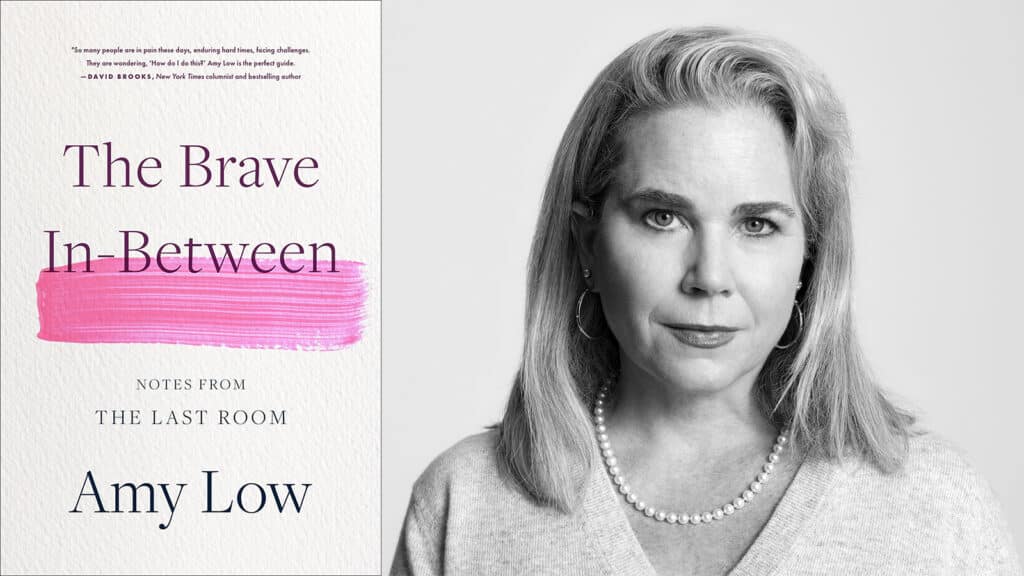
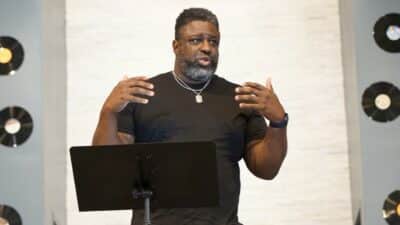

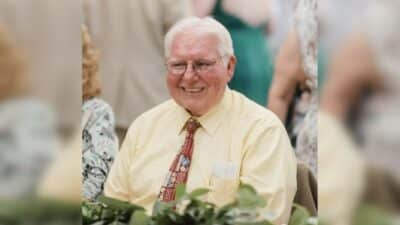

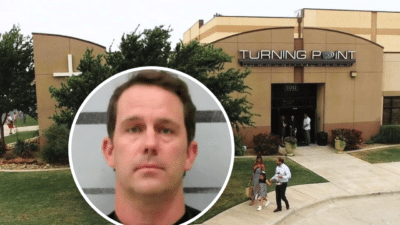
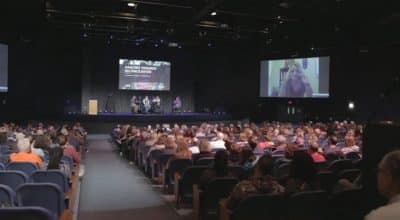

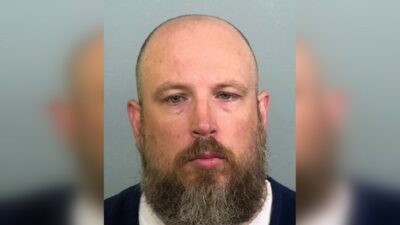
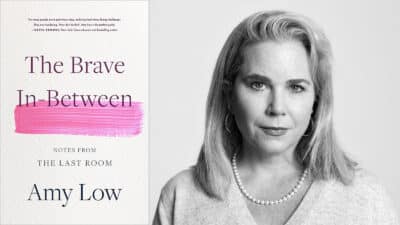






5 Responses
Very good but tough article to write, Christians so often hold weird beliefs. We expect God to hold his up his end of the deal if we serve and give etc. We expect a happy life with no suffering.
What gentle power. I need to buy her book and I really appreciate her story. Each person needs to find their own health resources, and because my wife has cancer, she has chosen ozone therapy after looking at many different options. And again, each person needs to make his or her decision, and ozone therapy fuels the cells to go after the cancer cells. Here is one website, with testimonies, in case anyone is interested: (https://www.youtube.com/@RobertRowenMD) IV ozone therapy can really help. Blessings on your journey and again – thank you for your honesty, transparency and testimony
Hello there from a sister in Australia. Please look for videos on how people are winning the battle with cancer with dog worming tablets. Some of them had stage 4 cancer and weeks later were cured. Think the medicine was called FENBENDAZOLE. It can readily be gotten at AMAZON.
Thank you for mentioning Fenben! Dr. Makis (cancer researcher) was on the Joe Rogan show not too long ago discussing this very affordable option.
Yes. It is true. I know people from Oklahoma who know Joe Tippens, the man who was healed originally.